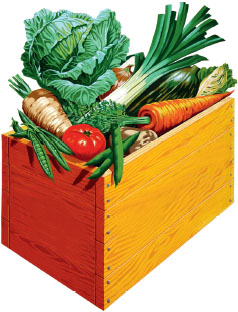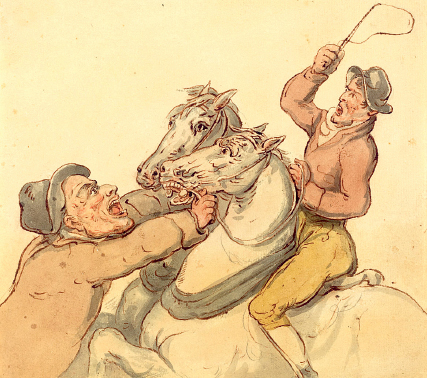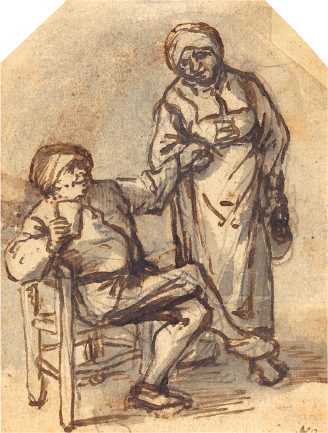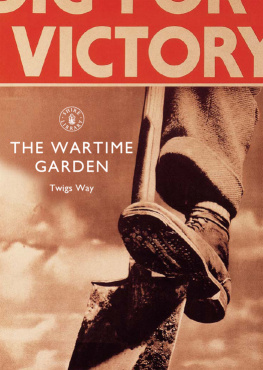OF
CABBAGES
AND
KINGS
The History of Allotments
Of CABBAGES
and KINGS
THE HISTORY OF ALLOTMENTS

CAROLINE FOLEY

For Jesse Maurice
CONTENTS
Epilogue
Further Reading
Timeline
Acknowledgments
Index
T AKING A TRAIN from Coventry earlier this year, it struck me that the history of allotments was unfolding backwards before my eyes.
First came the railway plots along the line the familiar image seen from the train in the suburbs of every industrial city in England and Wales. They are the wartime plots established when the government of the day was cajoling or shaming (whatever it took) the population to take on a plot and get digging. Wartime was allotment heyday. It is said that by 1943 the 1.4 million allotment plots, laid end to end, would have stretched from London to Dumfries.
As my train lumbered into the countryside, a patchwork of fields defined by thick hawthorn hedges covered in May flowers still so typical of the British landscape came into view. This is the living evidence of eighteenth- and nineteenth-century enclosures, when one-third of the total agricultural land in England was snatched into private hands. One-third of that was the commons.
I wished that the square tower of a Norman church would next appear, to illustrate the beginning. It did not, alas, but then I recalled that allotment people, a stalwart and cussed lot, still talk in terms of rods, poles and perches. All three the same measurement, they represent the distance between the back of the plough and the nose of the ox. This surely brings us back to medieval agriculture, practised at the time of William the Conqueror, and so to the very roots of allotments.

Drovers at work.
To wrong another by the name of right;
Thus came enclosure ruin was its guide,
But freedoms cottage soon was thrust aside
And workhouse prisons raised upon the site.
Een natures dwellings far away from men,
The common heath, became the spoilers prey;
The rabbit had not where to make his den
And labours only cow was drove away.
John Clare, The Fallen Elm (1820s)
N OWADAYS , WHEN SOMEONE heads off to their allotment it will be to enjoy a spot of gardening and perhaps compare notes with their fellow plot holders. Quite likely, it will be to take a break from the hectic pace of life and unwind in peace and quiet. It could equally be to spend time among the wildlife flooding into their green oasis. They might come to satisfy a desire to muddy their hands and breathe fresh air after a day spent in a stuffy office or flat. Or, on doctors orders, to get fit.
Allotmenteers grow vegetables and fruit because home-grown is fresher than they can buy, and probably (but by no means necessarily) cheaper. They can grow unusual and exotic vegetables, or delights that you cannot find in shops because they wilt too quickly for any shelf life. Plot holders can guarantee, if they wish, that their produce will be unpolluted, organic and naturally ripened by the sun. In short, for most people, allotments these days are held for pleasure more than for grinding necessity.
Yet it was not always so. Look back and you will find that allotments had little to do with leisure. Land to grow food was the vital lifeline for poor country people the serfs, peasants, agricultural workers or labouring poor, as they were variously known. For them land and the right to dig could make the difference between independence however meagre and the destitution of the workhouse.
The history of allotments touches on wider events and is shaped by forces that may seem unconnected to todays allotment gardener. It is a story of greed and power, of hunger, protest and the struggle for a fairer society. It concerns the arrogance of the ruling and rising middle classes and their indifference to the plight of the poor but also philanthropy, the pursuit of ideals and, eventually, some beneficent legislation.

Peasants drinking.
So, why does the past matter to us? Perhaps it is a call to keep in mind that dangers still lurk, that we should not take our plots for granted. It certainly provides a further perspective on how fortunate we are to have access to peaceful havens where we can grow food cheaply. History also provides a poignant reminder of the fact that if an allotment plot is today more or less a citizens right despite the long waiting lists this is largely due to past generations fighting tooth and nail for land. We owe them at least a nod of appreciation.
The battle for land has been an unequal one throughout history. On the one side is profit and, on the other, the most unprofitable needs of the poor. It seems something of a miracle that in the end altruism won over the aims and ambitions of the powerful even if spurred on by less-than noble fears of revolution, and later, in the twentieth century, by fears of defeat at war. But the battle is not over. Despite the fact that statutory allotments, the vast majority, are protected by law to a great extent, we cannot afford to be complacent. Other priorities, like housing, continue to compete for space with the 300,000 plots currently occupying 18,210 hectares (45,000 acres) in England and Wales.
The precedent for allotments goes back beyond historical records. In customs formalized under the law of medieval manor courts, the peasant had use of a piece of the common land, or the commons, so he could grow his own food, at very least for subsistence. By common right he could also graze livestock and collect fuel. History relates how he was cheated of this born right and how, eventually, he got it back in a smaller measure in the form of allotments.
The Liberal statesman David Lloyd George, speaking in 1913, more than 800 years after the Norman Conquest, regretted that the right to land had been stolen from the medieval peasant, bringing hardship and humiliation over the centuries that followed:
He had his common where he could graze a cow that would give him milk and butter for his children. There was a little patch where he could grow corn to feed them. There he had his poultry, his geese, his pigs; a patch of land where he could grow green produce for his table. He was a gentleman; he was independent. He had a stake in his country. His title was as ancient and apparently indefensible as that of the lord of the manor.
So, to get a true perspective on the history of allotments we need to start with their foundation stone the common land. The describes the daily round of the serf, his entitlement to the commons and his place in the village in a simple farming society.
The feudal system began to crumble when the Black Death decimated the population in the 1300s. The war-mongering medieval kings imposed massive poll taxes to finance their fruitless wars with France. The peasants were pinned down to their villages, with their wages capped.
The sixteenth century saw the end of serfdom. However, it liberated not just the serf from the master, but also the master from the serf. The lords of the manor seized the opportunity to switch to the more profitable and less work-intensive business of sheep farming. Many of the arable lands that had kept agricultural workers occupied throughout the year were converted to pasture.
Next page












